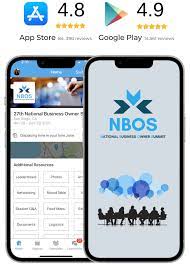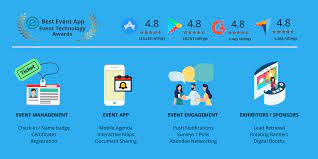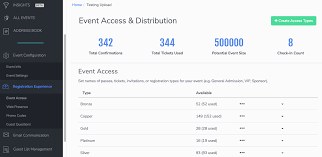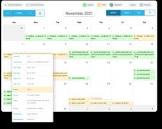White Label Event Management Software: Empowering Event Professionals
In today’s fast-paced world, event professionals are constantly seeking innovative tools and technologies to streamline their operations and deliver exceptional experiences to attendees. One such solution that has gained significant popularity in recent years is white label event management software. This powerful tool not only simplifies the planning and execution of events but also enables event organizers to brand the software as their own.
So, what exactly is white label event management software? In simple terms, it is a customizable software platform that allows event professionals to add their branding elements, such as logos, colors, and designs, creating a seamless experience for both organizers and attendees. This means that the software can be tailored to match the unique identity of an event planning company or organization.
One of the key advantages of white label event management software is its versatility. Whether you are organizing corporate conferences, trade shows, music festivals, or any other type of event, this software can be customized to meet your specific requirements. From registration and ticketing to attendee engagement and post-event analytics, all aspects of event management can be efficiently handled within a single platform.
Another significant benefit of white label solutions is the increased credibility they offer. By presenting a branded software solution to clients and attendees, event professionals can establish themselves as trusted experts in their field. The cohesive branding creates a unified experience that enhances professionalism and builds trust among stakeholders.
Furthermore, white label event management software provides flexibility for event organizers. With customizable features and functionalities, you have the freedom to tailor the platform according to your unique needs. Whether you want to incorporate specific modules or integrate with other tools like CRM systems or marketing automation platforms, white label software offers endless possibilities for customization.
Additionally, white label solutions often come with comprehensive support services from the provider. This ensures that you have access to technical assistance whenever needed, allowing you to focus on delivering an exceptional event experience rather than worrying about technical glitches or troubleshooting.
From a financial standpoint, white label event management software can be a cost-effective solution. By eliminating the need for in-house development or hiring external developers to create custom software, event professionals can save both time and money. The ready-to-use white label software reduces the time it takes to launch an event, allowing organizers to focus on other critical aspects of planning and execution.
In conclusion, white label event management software has revolutionized the way events are planned and executed. Its customizable nature, versatility, increased credibility, flexibility, and cost-effectiveness make it an indispensable tool for event professionals. By harnessing the power of this technology, organizers can streamline their operations, deliver exceptional experiences to attendees, and establish themselves as industry leaders. So why not explore the world of white label event management software and unlock its transformative potential for your next event?
Common Questions about White Label Event Management Software
- What is the difference between white-label and SaaS?
- What is a white-label platform?
- What is a white-label event app?
- How much does white labeling cost?
What is the difference between white-label and SaaS?
White-label and Software as a Service (SaaS) are two different approaches to software solutions, each with its own characteristics and benefits.
White-label refers to a software product or service that is developed by one company and then rebranded and resold by another company as their own. In the context of event management software, a white-label solution allows event professionals to customize the software with their own branding elements, such as logos, colors, and designs. The white-label provider typically handles the development, maintenance, and updates of the software, while the reselling company focuses on marketing, customer support, and client relationships.
On the other hand, SaaS is a software delivery model where applications are hosted on the cloud and accessed by users over the internet. In this model, users subscribe to the service on a pay-as-you-go basis or through a subscription plan. SaaS providers are responsible for hosting, maintaining, securing, and updating the software infrastructure. Users can access the software from any device with an internet connection without needing to install or manage any hardware or software locally.
While both white-label and SaaS offer customizable solutions for businesses, there are some key differences between them:
- Ownership: With white-label solutions, companies have more control over branding and customization since they can rebrand and resell the software as their own. In contrast, SaaS solutions are owned by the provider who maintains control over branding and customization options available to users.
- Development Responsibility: White-label providers handle all aspects of developing and maintaining the software solution. They ensure that it remains up-to-date with new features and security patches. In SaaS models, providers take care of infrastructure management but also continuously develop new features for all users.
- Time-to-Market: White-label solutions offer faster time-to-market since companies can quickly launch their branded version of an existing product without investing in development from scratch. In contrast, SaaS solutions may require more time for customization and integration into existing systems.
- Scalability: SaaS solutions are typically designed to be highly scalable, allowing users to easily add or remove features, modules, or users as their needs evolve. White-label solutions may have scalability limitations depending on the customization options provided by the provider.
In summary, white-label solutions focus on rebranding and reselling existing software products as a customized offering, while SaaS delivers software applications over the internet on a subscription basis. Both approaches have their advantages and are suitable for different business needs and strategies.
What is a white-label platform?
A white-label platform is a product or service that is developed by one company but can be rebranded and resold by another company as its own. The term “white-label” refers to the practice of removing the original branding and allowing the purchaser to apply their own branding, logo, and design elements to create a seamless experience for their customers.
White-label platforms are commonly used in various industries, including software, technology, finance, marketing, and more. They provide a cost-effective solution for businesses that want to offer a specific product or service without investing in the development process from scratch.
With a white-label platform, companies can save time and resources by leveraging an existing product or service that has already been developed and tested. This allows them to focus on their core competencies while still providing value-added solutions to their customers.
The flexibility of white-label platforms also enables businesses to tailor the product or service to meet their specific needs. They can customize features, functionality, design elements, and even integrate it with other systems or services as required. This level of customization allows companies to maintain consistency with their brand identity while offering a unique solution in the market.
Moreover, white-label platforms often come with ongoing technical support from the original provider. This ensures that any issues or updates are handled efficiently, allowing businesses to provide reliable customer support without having to develop an extensive support infrastructure themselves.
In summary, a white-label platform is a ready-made solution that can be rebranded and resold by another company as its own. It offers flexibility, cost-effectiveness, customization options, and ongoing support for businesses looking to expand their product offerings without investing heavily in development efforts.
What is a white-label event app?
A white-label event app is a customizable mobile application that event organizers can brand and personalize with their own logo, colors, and content. It provides a comprehensive platform for attendees to access event information, engage with the program, and stay connected throughout the event.
The term “white-label” refers to the ability to remove any branding or references to the app’s original developer or provider, allowing event organizers to present the app as their own product. This gives organizers full control over the branding and user experience, creating a seamless extension of their event’s identity.
White-label event apps typically offer a range of features tailored to enhance attendee engagement and improve overall event management. These features can include:
- Event Agenda: A dynamic schedule that allows attendees to view session details, speaker information, and create personalized itineraries.
- Networking Tools: Features like attendee directories, messaging capabilities, and matchmaking algorithms facilitate networking opportunities among participants.
- Interactive Maps: Detailed venue maps help attendees navigate the event space efficiently and locate specific sessions or exhibitor booths.
- Live Polling and Q&A: Real-time polling features enable audience engagement during sessions or presentations, while Q&A functionalities allow attendees to submit questions digitally.
- Push Notifications: Instant updates on schedule changes, important announcements, or reminders can be sent directly to attendees’ devices through push notifications.
- Exhibitor Listings: An interactive directory of exhibitors with detailed profiles helps attendees explore and connect with relevant vendors or sponsors.
- Social Media Integration: Seamless integration with popular social media platforms allows attendees to share their experiences in real-time and promote the event through their networks.
White-label event apps offer numerous benefits for both organizers and attendees alike. Organizers can reinforce their brand identity, provide a personalized experience for participants, gather valuable data insights through analytics, and improve overall communication during the event. Attendees benefit from easy access to relevant information, enhanced networking opportunities, interactive engagement, and a more streamlined event experience.
By leveraging a white-label event app, organizers can elevate their events to new heights, delivering a modern and engaging experience that leaves a lasting impression on attendees.
How much does white labeling cost?
The cost of white labeling event management software can vary depending on several factors, including the provider, the level of customization required, and the specific features and functionalities needed for your event management needs.
Some providers may charge a one-time fee for white labeling their software, while others may have a recurring licensing or subscription model. The pricing structure can also differ based on the scale of your events and the number of attendees you anticipate.
It’s important to note that white labeling is often offered as an add-on service by event management software providers. Therefore, the cost of white labeling is usually in addition to the base price of the software itself.
To get an accurate estimate of the cost, it is recommended to reach out to different software providers and discuss your specific requirements with them. They will be able to provide you with detailed pricing information based on your needs and customization preferences.
Remember that while cost is an important consideration, it’s equally crucial to evaluate the features, functionality, support services, and reputation of the provider when making a decision. Investing in a reliable and comprehensive white label event management software solution can greatly enhance your event planning capabilities and deliver a seamless experience for both organizers and attendees.




